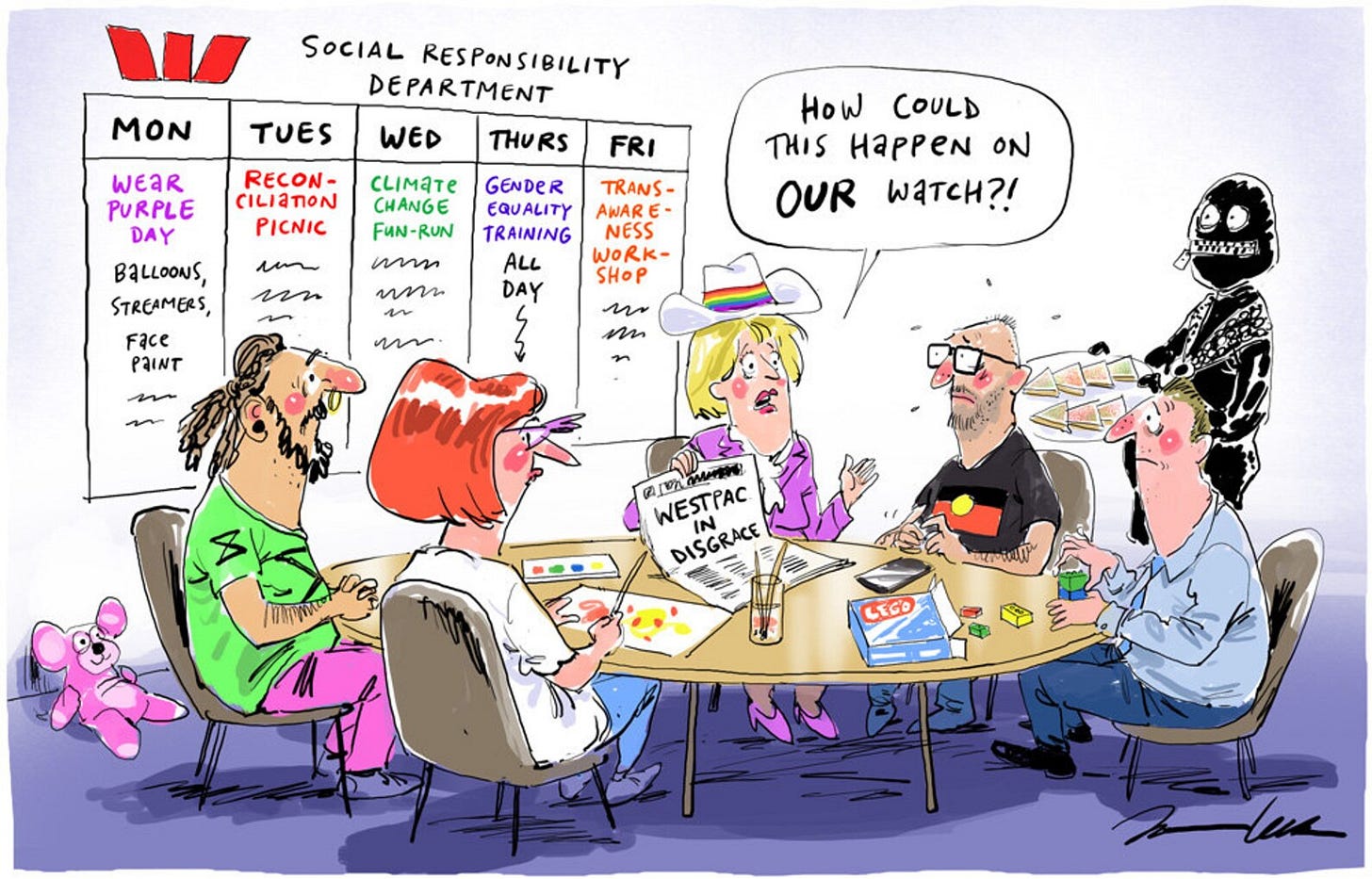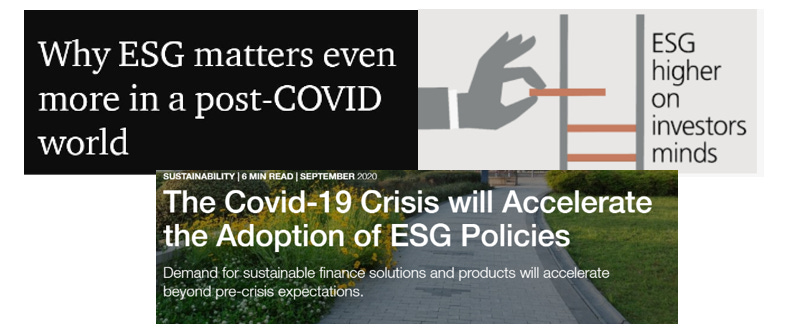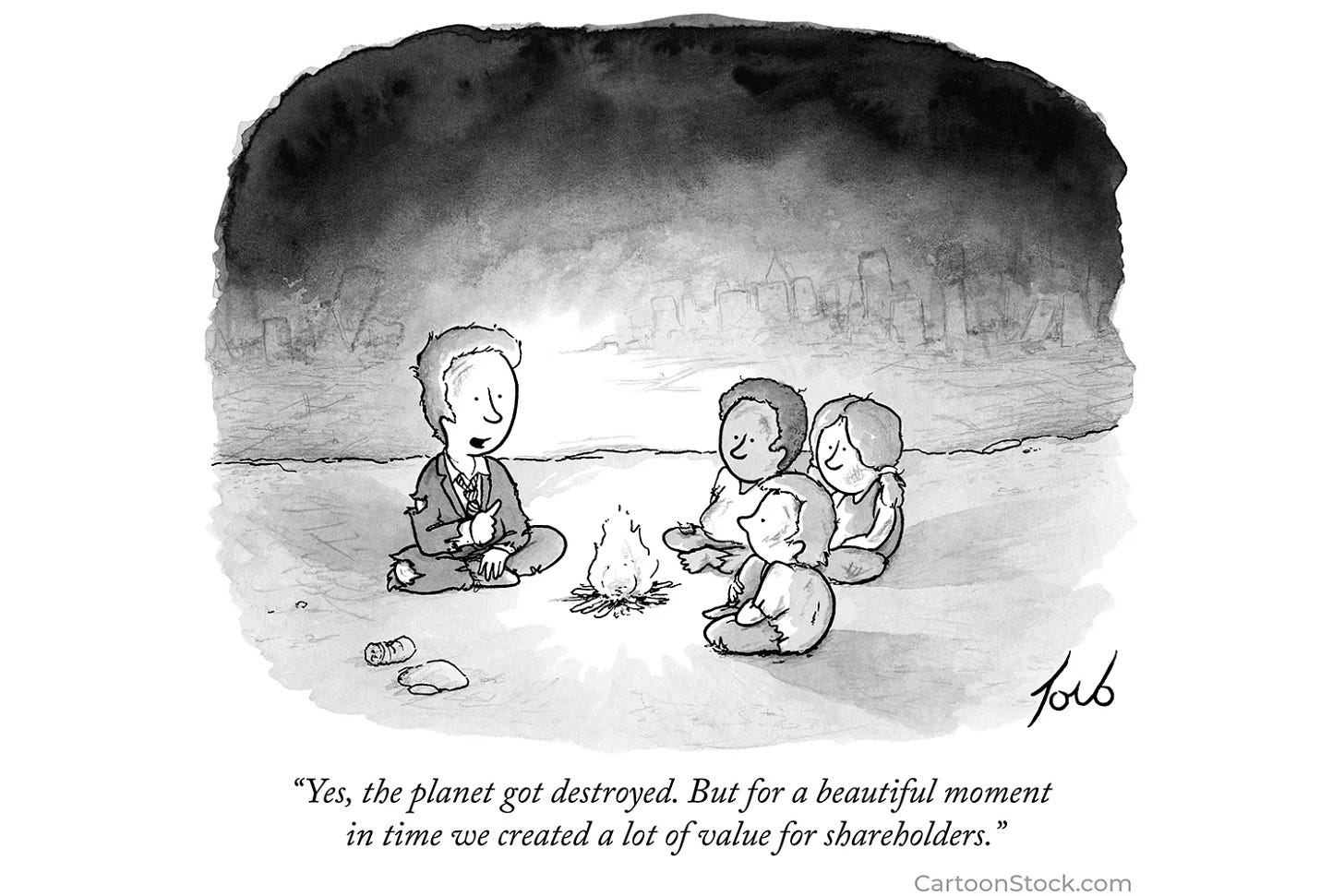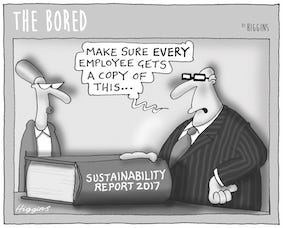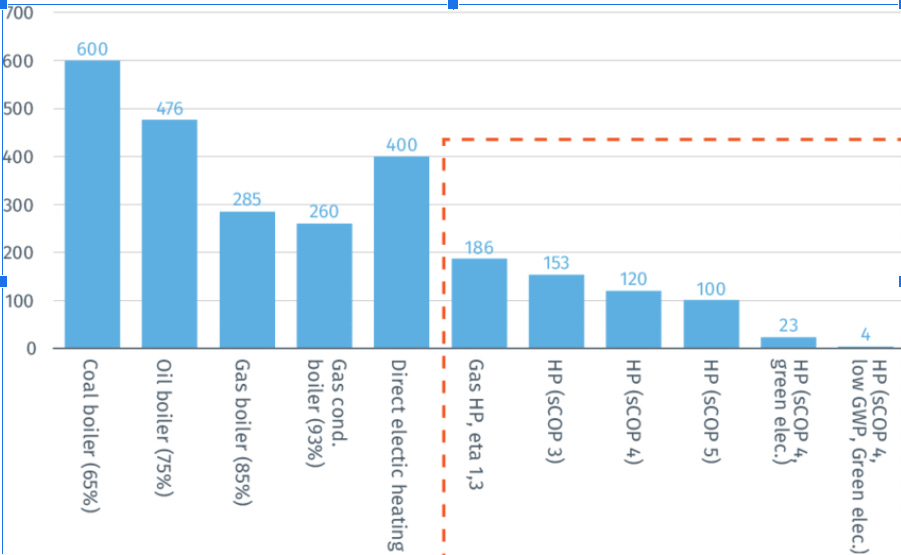Extracted/ English Version - January 2024 : The (corporate) Clash : Should I stay or should I go?
"Too sad to work?". The Telegraph ran this headline on January 15 to celebrate "Blue Monday". Faced with low employee morale1, many experts are calling for jobs with more “Purpose”. In France, many large companies have set up "Engagement Teams" tasked, among other things, with mobilizing employees in support of societal missions.
A genuine lever according to some, an emissary of greenwashing for others, the perception of sustainable development players within companies is divided. At a time when the crossing of planetary boundaries threatens many business models, what is the real impact of the environmental and social initiatives undertaken by companies? Can we really hope to change things from the inside? We discuss these questions in this month's "In-Depth" section. Finally, in this winter month we offer some tips for heating at lower (financial and environmental) cost.
Enjoy the read and many thanks to all of our new subscribers! Don't hesitate to send us your comments, remarks and suggestions.
In-depth💡- Corporate Social Responsibility: Myth or Reality? .
Sustainability teams : modern-day sisyphs?
In 2020, the apostles of Corporate Social Responsibility (CSR) thought their hour of glory had (finally) come. Gone were the long hours of doubt, the incessant tug-of-war between a sincere desire to make a difference and pessimism about their ability to make a real impact. At last, ESG funds were proving resilient. It was possible to reconcile shareholder value with ethical values. Many of the world's leading companies rushed to publish a myriad of studies in support of this narrative.
Alas, the euphoria was short-lived. By the end of 2021, sustainability skepticism was back in full swing, particularly in the US.
Interviewed recently on this subject, Alison Taylor, professor at NYU Stern School of Business, where she teaches professional responsibility, sustainability, and leadership classes, explains: "It would be one thing if we'd moved on from Milton Friedman's era to stakeholder capitalism. The problem is that the pressures of short-term shareholder value have not gone away. And we've added a lot of new pressures to also think more long-term. Balancing these interests is easier said than done."
At a time when the widely documented fairy tale of a decorrelation between CO2 emissions, the destruction of biodiversity and economic growth is becoming less and less credible, is it possible to reconcile these contradictory injunctions? 🤔
Alison Taylor adds: "This is a very polarized debate. On the one hand, there are people saying : ‘this all nonsense, it's wokism, we need to go back to making a profit'. On the other hand, within the sustainability community, among more progressive employees, there is a sense that nothing you can do will ever be good enough (...)".
Too much for some, not enough for others. Isn't the ambition to change the system from within inexorably doomed to failure? Rather than perpetuating an illusion, shouldn't we adopt a more realistic stance: it's the catastrophes linked to planetary boundaries that will force change. In the meantime, for those who want to make a commitment, we might as well find other paths and prepare for "the world after"?
Let’s explore the various paths:
What Millenials Want…🚨
"We don't believe that technological innovation or start-ups will save anything other than capitalism;
We don't believe in sustainable development, green growth or the "ecological transition", an expression which implies that society could become sustainable without getting rid of the dominant social order (...). .
We want to adresse those of you who have doubts;
Those of you who hope to change things from the inside and don't really believe in it any more;
Those of you who are afraid of taking a step aside because it wouldn't look good on your CV, to move away from your family and your network (...).
Let's not waste our time and, above all, let's not let this energy slip away before we're trapped by financial obligations;
Let's not wait for our kids to ask us for money to go shopping in the metaverse because we did not take the time to make them dream about something else;
Let's not wait until we're incapable of anything other than a pseudo retraining in the same job but repainted in green;
Let's not wait for the 12th IPCC report which will demonstrate that States and multinationals have never done anything."
Some of our readers may remember this radical speech given in 2022 by engineering graduates from the French elite AgroParisTech university, calling for fellow students to join them in deserting the agro tech industry. Other students from numerous leading French schools then followed suit, speaking out at graduation ceremonies. Student associations devoted to ecology grew in size, notably HEC Transitions and ESCP Transition Network. The Ecological Manifesto movement, which brings together students' demands, attracted over 30,000 signatures.
Mass desertion? 🏃♂️ 💨
Despite the student rebellion trend widely reported in the media, we are still far from a profound revolution. Every year, the Universum Institute observes this trend in a poll of 30,000 students in France. To the question "Would you be prepared to apply for a job with a company that isn't in line with your values?" 59% answered that they would be willing to do so, as long as the salary and the mission suited them. These results are in line with another survey conducted by Deloitte in 2023 involving over 20,000 people in 20 countries: ESG is not a decisive factor for the majority.
Valentina Carbone, Professor of Sustainability & Supply Chain at ESCP Business School, notes: "There is no tectonic wave. The neutral middleground remains a majority. Students have beliefs but they are politicized. What we are seeing -however- is a polarization of students, in the image of society as a whole". Speaking on the same panel, Anne-Fleur Goll, alumni of France’s top business school HEC confirms: "The demands of students committed to ecology are much more radical today than in 2016".
Can radicalism fit within organizations? 💥 🔄
Increasingly demanding employees...
Like the student movement, studies highlighting the growing expectations of employees in terms of ESG commitments are multiplying2.
Even so, many point to the fact that corporate Social and Environmental Responsibility continues to be a form of superficial window-dressing, or even greenwashing. Having employees committed to these issues would be acceptable as long as initiatives were limited to eco-gestures and recycling... Beyond that, when an employee refuses to take the plane or - worse still - starts criticizing the company's positioning - we quickly reach the limit of remaining on superficial commitments or completely focused on ESG reporting/data that don't lead to any concrete action.
In a report titled "Enough! A review of corporate sustainability in a world running out of time", Ernst & Young consultants highlight an inverted curve between corporate commitments to various international ESG initiatives and planetary boundaries.
In an interview for this article, a CSR manager told us: "I've been asked to tone down my demands. Being too radical ends up putting people off. It does not lead to any results.”
In a recent post, Erica Löfving, Chief Sustainability Officer for a Wine Estate in the US, wrote : “If you become difficult, challenging the narrative (…), you place yourself at (…) risk. So our conscience is torn between calling out what we know is putting us straight on the path to disaster in the medium-long term and being more amenable to keep our salaries and keep our (probably insufficient) projects moving forward internally while staying in the good graces of our CEOs and boards. Keep our friends and colleagues from thinking we are boring doomsdayers, out to challenge their pleasant way of life, consumption patterns and lovely holidays to Bali.”
When reading these quotes, one can not help but wonder : is it really possible to remain independent-minded within a company? Doesn't the pragmatic approach to getting projects off the ground lead to a form of problematic collusion?
Many would disagree. Now a consultant with Deloitte, Anne-Fleur Goll is convinced that it is possible to reconcile a deep ecological conviction with a career focused on the transition agenda. She even continues to pursue activist actions with NGO Extinction Rebellion alongside her job. "It's a fine line," she comments.
This posture echoes a number of established movements including :
The concept of "Tempered radicalism" theorized by Debra Meyerson, Professor of Organizational Behavior at Stanford University. In her work, Meyerson demonstrates, including through case studies, how individuals can work for change within organizations by maintaining a balance between their deeply held convictions and the need to adapt to corporate codes. These "tempered radicals" do not completely reject established structures, but rather seek to introduce innovative ideas and progressive change.
The Corporate Rebels movement launched in the Netherlands by young engineers. Based on the observation that the workplace is suffering from mass demobilization, the movement insists on the need for a different - and more meaningful - organization of work, notably through networks of relatively autonomous employees, operating on an increasingly horizontal basis3.
Rise of employee activism
In recent years, staff networks have grown and become more active in the field of climate. Examples include actions led by Google and Amazon employees.
While this kind of actions remains unsual, the potential impact for companies is not negligible. In a survey conducted by Deloitte, the majority of a sample of over 2,000 senior executives polled in 24 countries stated that employee activism had a significant impact on their company's strategy.
In France, staff networks are also growing and getting more active, both within and outside the company. An eco-syndicate (Printemps écologique) was founded in 2020 and has 300 elected representatives in 60 companies. Other highly active networks include FEVE and Les Collectifs.
Ode to the sentinels
"And the simple shepherd who watches over his sheep under the stars, if he becomes aware of his role, discovers himself to be more than a shepherd. He is a sentinel. And each sentinel is responsible for the whole empire." Antoine de Saint-Exupéry.
Contrary to what the title of this newsletter might suggest, our intention is not to preach "exfiltration" as the only viable and desirable solution.
On the contrary, we are convinced that committed sustainability teams, though often maligned, are indispensable sentinels within companies.
For those of us who wish to (re)reconcile our ecological convictions with a corporate career, the road is long and full of pitfalls. Among the (many) challenges and questions we face:
How does corporate governance take sustainable development criteria into account?
Are these issues represented on the executive board, on the board of directors, and by whom?
Are they taken into account in remuneration criteria? How are they taken into account? (to paraphrase Upton Sinclair “It is difficult to get a man to understand something, when his salary depends on his not understanding it.”)
What is the real impact of ESG initiatives on the company's business model?
How can we make our own this adaptation of Marcus Aurelius' quote to ensure that we haven't become a mere guarantor of the system? : "give me patience, to dissociate from what only perpetuates the system. Give me strength to change what I can. And give me wisdom to distinguish one from another.”
Mutliple perspectives
So what is the best approach? Get involved internally? Quit? Transition to something new? Rather than opposing these paths, why not reconcile them by building bridges from one to the other, or by engaging in dialogue with players on the other side?
As one person who recently left his job as head of sustainable development told us: "It's hard to keep a critical eye. At some point, you start believing your own bullshit. That's why I try to switch jobs regularly. To stay as clear-headed as possible by multiplying perspectives.
Anne-Fleur Goll concludes: "I was disappointed that people were trying to pit me against the AgroParisTech students. The quitters vs. me staying in the system. Everyone chooses their own method. We can multiply them and evolve. The right path is above all the one that makes us happy, and therefore effective."
Did you like this article? Feel free to share!
From knowledge to action 🙋♂️- How to heat without warming the planet? 🥵
After an unusually mild autumn, the brief cold snap of recent weeks in France reassures us that winter still exists. Paradoxically, the disappearance of the Gulf Stream could make our European winters as severe as those of New York: what choices should we make today to adapt without making things worse?
A significant individual expense 🔥
As observed in my 2023 carbon footprint report, domestic heating is a significant source of CO2 emissions, averaging 14% of the UK footprint in 2021, and much higher for those still heated with oil boilers.
Before rushing into choosing a heating system, let's remember that it all starts with insulation. It is by far the first action to take (especially for the roof, then windows and exterior walls) to avoid heating a Danaid’s barrel.
Once this is done and the thermostat set to 19°C during the day, can we use any means to warm up?Here are the approximate CO2 emission levels per Kwh for different heating methods:
Source: EHPA, 2018 [40])
Despite a carbon footprint far from satisfactory, gas boilers have been heavily promoted in recent years (at least in France). Subsidies for their installation have only recently been phased out, and the associated VAT remains at a reduced rate.
According to data collected by the Shift Project, between 2016 and 2021, in order to equip new French homes (1,374,000) and replace oil boilers (439,000) as well as electric heaters (1,000,000), we primarily used heat pumps (50%), followed by gas boilers (30%) and wood boilers (15%). Even though the electrical grid is often less resilient outside of urban areas, the peaks caused by heat pumps would be largely offset by efficiency gains and measures of frugality, still according to the Shift. After insulating the home, it is important to choose the most appropriate heat pump system (air/air, air/water, etc.) to optimise spending.
But beware of the rebound effect! The gains will be erased if the decrease in the bill leads you to heat to 22 degrees. To better resist temptation...
Don't just heat your space, warm yourself up! 🍵
Indeed, the rebound effect is exacerbated by the fact that the size of homes in Europe and the US has been increasing for decades: we are therefore heating more and more cubic meters of air in order to warm ourselves up.
So, to reduce your impact and gain comfort, invest in thermal clothing, bring out your hot water bottles, and boil the kettle!
Did you enjoy this newsletter? Feel free to subscribe to receive the next issues!
Annual survey of over 120,000 employees in 160 countries Gallup https://www.gallup.com/learning/event/3872172/EventDetails.aspx
https://www.edelman.com/sites/g/files/aatuss191/files/2023-03/2023%20Edelman%20Trust%20Barometer%20Global%20Report%20FINAL.pdf slide 29
In line with the ideas advocated by "Corporate Rebels", many observers point to the fact that a complete revolution of the "top-down" structure is needed within companies to cope with the radical changes in business models that will be required. To dig deeper, we recommend 👉 the example of Ray Anderson, the visionary CEO of interface who initiated a visionary repositioning of the company in the 1990s thanks to the mobilization of his employees, as well as 👉 reading this post by Alison Taylor.


